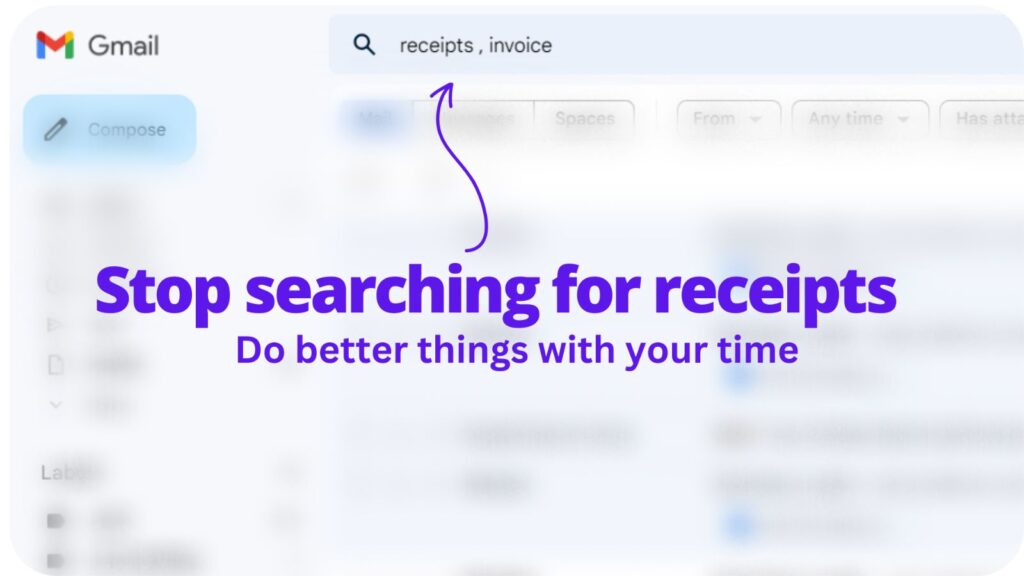Ever wondered about tax categories? Taxes might seem daunting, but understanding the different types can actually help you manage your money better.
This article is going to make tax categories easy and understandable for everyone. We’ll talk about what they are, why they matter, and how to handle them in everyday life.
Understanding the Basics of Tax Categories
Definition of Tax Categories
What are tax categories? They are types of taxes we pay. Each type has its own rules. Let’s take income tax and property taxes as examples.
Income tax is a tax on money we earn. Wages from a job, for example. The government sorts our earnings into tax brackets. Each tax bracket has a tax rate. If you earn more, your tax rate can be higher. This is called progressive taxation.
Things like houses and land are property taxes, these are the things we own. Local governments decide these tax rates. Usually, they base it on the value of the property.
But that’s not all. There are other tax categories too.
The Importance of Knowing Your Tax Category
Why is it important to know your tax category? There are two main reasons.
First, it helps you plan. A good plan can save you money. If you know your tax liability, you can make better choices. You can take tax deductions and tax credits. These help lower your tax bill at the end of the tax year.
Second, it makes tax time easier. Filing taxes can be hard. But, if you understand tax brackets and income tax brackets, it gets easier. You can avoid mistakes on your tax return. You might even get some money back.
Common Types of Tax Categories
Income Tax Categories
Income tax is a big topic. It’s all about taxable income. You earn money, and you share some with the government. But how much?
Tax brackets have the answer. These are like steps. Each step is an “income tax bracket”. You move up the steps based on how much money you make.
Income taxes can be confusing. For example, do you know how income tax brackets work? They are not as complex as they sound. They only decide what part of your income you have to pay as tax.
But be careful. If you make more money, you might step into a higher tax bracket. You might have to pay more tax. Yet, it’s not all bad. When you earn more you pay more taxes.
Corporate Tax Categories
Next, let’s talk about businesses. They pay taxes too. These are called corporate taxes.
Every year, businesses have to pay a part of their earnings as tax. This is similar to how you pay income tax. The only difference is the tax rate. The rate for businesses can be different from what you pay as an individual.
Just like income tax, there are federal income tax rates for businesses too. And, guess what, businesses have tax brackets too.
Sales and Excise Tax Categories
Now, onto another type of tax – sales and excise tax. Have you noticed when you buy something, the price at the counter goes up? That’s because of sales tax.
Sales tax is added to the price of things we buy. It’s a percentage of the cost. So, the more costly the item, the more tax you pay.
Excise tax is similar. But it’s only for specific goods. Like gas or cigarettes. It’s another way the government collects money.
How Tax Categories Affect Individuals
Tax Implications for Different Income Levels
You might wonder how much tax you need to pay. It depends on a few things. One big factor is your taxable income. This means the amount of money you make that can be taxed.
Your income tax brackets are important too. Each tax bracket represents a range of income. Higher brackets mean higher tax rates. So, you’ll pay more taxes when you earn more.
But wait, it’s not all bad news. Even if your income goes up, only the extra money gets taxed more. The rest of your money still gets taxed at lower rates. This is known as marginal tax rates. It helps to make taxes fair.
Role of Tax Categories in Personal Tax Planning
Understanding taxes can help you plan better. This is called personal tax planning. The idea is to understand how taxes work, so you can save money.
For example, let’s say you are married. You and your spouse can choose to file your taxes together. This is known as married couples filing jointly. It’s a type of filing status. You could also choose to file separately as married filing separately. Each status has different tax rates and rules.
What about deductions? These are things you can subtract from your income before calculating your tax. Itemized deductions are expenses like medical bills or charity donations. When you subtract these from your income, you could pay less tax.
It’s also possible to cut your tax bill by saving for retirement. Money you put into retirement accounts like a traditional IRA can often be deducted from your income. So you pay less tax now, and save for the future.
How Tax Categories Influence Businesses
Impact of Tax Categories on Business Profitability
Businesses make money. That’s called income. And businesses have to pay taxes on their income. That’s called income tax.
However, businesses can also have expenses. For instance, if a company buys a new office, that’s an expense. So, businesses subtract their expenses from their income. The result is their taxable income.
Understanding business expense categories can be crucial in this process, as different categories can influence how much tax a business ends up owing.
Tax rates then apply to this taxable income. There are different tax brackets for different levels of income. The higher the income, the higher the tax rate. That’s why big companies often pay more taxes.
But, taxes can also affect how much profit a business makes. Profit is the money a business keeps after all expenses, including taxes. Higher taxes can mean less profit.
Tax Categories and Corporate Financial Planning
But, businesses don’t just pay taxes. They also plan for them. This is called corporate financial planning.
For example, companies can choose when to buy new equipment. If they buy in a year when they make lots of money, they can reduce their taxable income. So, they pay less tax. This is a type of tax planning.
Businesses can also take advantage of tax cuts. These are reductions in tax rates. For instance, the “Jobs Act” was a tax cut that helped many businesses. By paying less tax, businesses can make more profit.
Finally, businesses often hire tax experts or tax attorneys. These are professionals who understand tax laws. They can help businesses make the best decisions to save money on taxes.
How To Determine Your Tax Category
Assessing Personal Income and Expenditures
First, you need to add up your income. Income is the money you earn. For example, from your job or a retirement account.
If you’re married filing jointly, add up your spouse’s income too. If you’re single or married filing separately, only count your income.
Next, count your deductions. Deductions are expenses that can reduce your taxes. Medical expenses or real estate taxes can be deductions.
Subtract your deductions from your income. The result is your taxable income. This is the income you pay tax on.
Your taxable income then puts you in a tax bracket. Different brackets have different tax rates. The higher your income, the higher your bracket and rate.
Evaluating Business Revenue and Expenses
But what if you own a business? Then, your income is your business revenue. And your deductions are your business expenses.
Add up your revenue. Subtract your expenses. The result is your business taxable income.
Your filing status also matters. Self employed people may pay a different tax rate.
Finally, keep in mind the tax year. The tax year lasts 12 months. This is the period for which you report your income and expenses.
Optimizing Your Finances By Understanding Tax Categories
Effective Tax Planning Strategies
One way is tax planning. This is like a game plan for taxes. You plan what to do to pay less tax. But it has to be legal. Understanding receipt categories for taxes can also play a crucial role in this process.
For example, let’s say you have a high taxable income. You’re in a high tax bracket. The tax rate is high too. So, what can you do?
First, increase your deductions. Remember, deductions reduce your taxable income. You might pay less tax.
How can you do this? One way is to donate to charity. You will reduce your taxes and help others.
Another way is to save for retirement. The money you put in retirement accounts can reduce your taxable income.
If you’re married, consider filing jointly. This way, you might pay less tax than married filing separately.
How Knowledge of Tax Categories Can Benefit Your Financial Health
Knowing your tax category can also help you plan your finances. You’ll know how much tax you might pay. So, you can plan your spending and saving better.
Let’s say you’re a single filer. You will get a lower tax bracket. And, you might have more money to spend or save.
On the other hand, you might pay more taxes if you’re self-employed. So, you might need to save more money for tax day.
Questions People Often Ask
What’s estate tax exemption and why does it matter?
Estate tax exemption is like a magic wand in the world of estate taxes. If you get a big inheritance, some of it might not be taxed. This part is the estate tax exemption. It can seriously boost the amount you end up with in your pocket.
Can you explain miscellaneous itemized deductions?
Miscellaneous itemized deductions were once ways to pay less tax. They let you remove some expenses from your income before figuring out your tax. But be careful, most taxpayers can’t use these anymore since 2018. There are a few exceptions though, especially for some employees or if you work for yourself.
What about local taxes? What are they?
Local taxes are taxes collected by city or county governments. They can be added to stuff you own, stuff you buy, or even sometimes the money you earn. These taxes help keep our communities running by paying for local schools, garbage collection, and emergency services.
What does it mean to be filing jointly?
Filing jointly is an option for married couples at tax time. It lets both partners’ incomes be taxed as if they were one person. This can often lead to a smaller overall tax bill than if they filed separately. It’s especially good if there’s a big gap in the partners’ incomes.
Wrapping It All Up
To put it simply, understanding tax categories is really important for managing your money well. The world of tax categories, like income tax brackets, federal tax rates, and itemized deductions, affects everyone – from single folks, married couples, to self-employed people.
Being smart about taxes can help you make good financial decisions. And don’t worry if it all sounds too tricky. A tax attorney or tax expert is always there to help you out. Taxes might not be the most fun topic, but they are important, so it’s worth getting to know them a bit better.

Collect receipts from your email automatically!
Try WellyBox - your AI assistant for receipts😃
Start for Free

